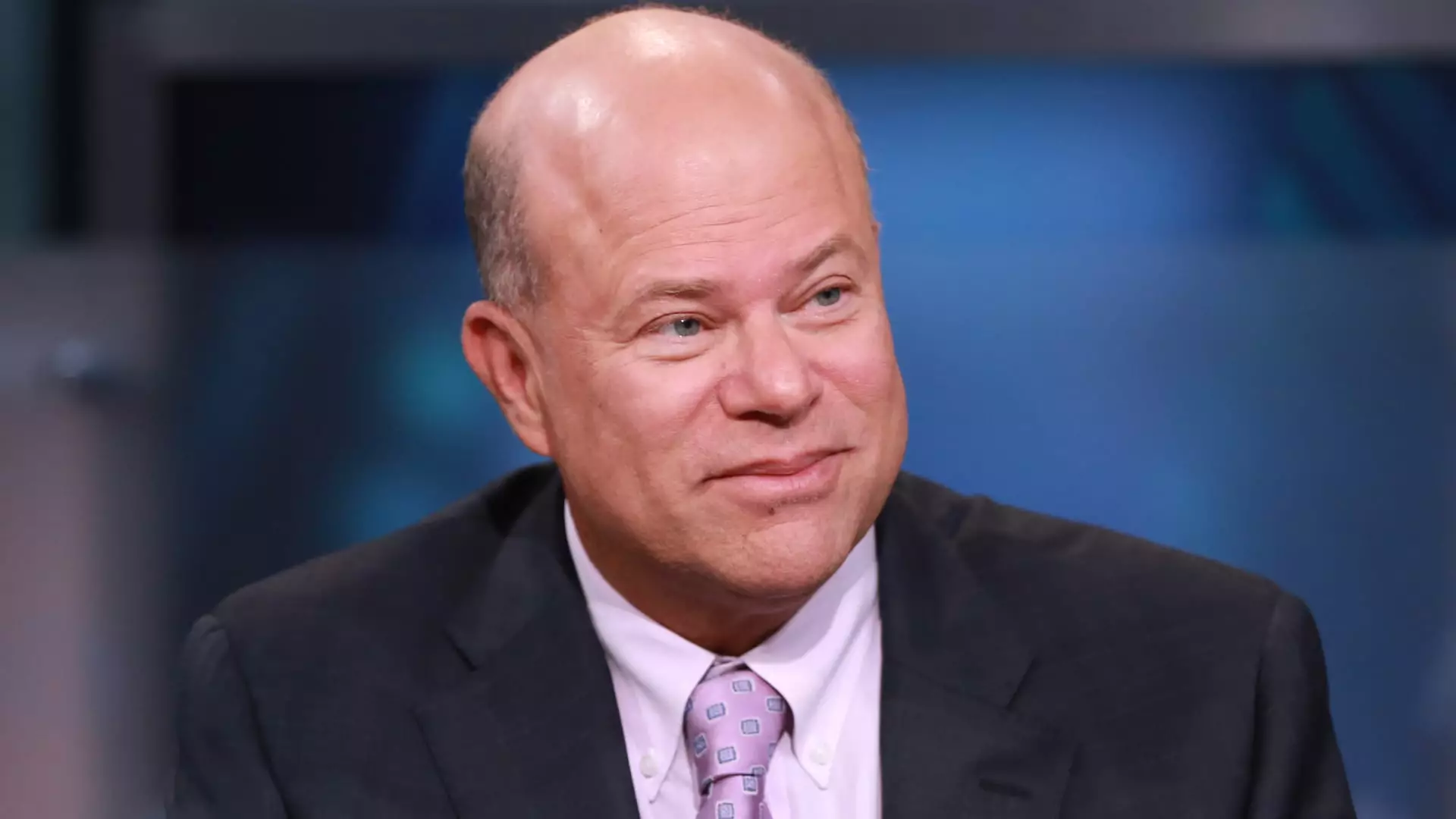David Tepper, the influential investor and founder of Appaloosa Management, recently weighed in on the Federal Reserve’s monetary policies during an interview on CNBC’s “Squawk Box.” His comments serve as a reminder to investors about the gravity of the Fed’s signals and the essential role of credibility in its decision-making process. Tepper emphasized the importance of listening to what the Fed Chairman, Jerome Powell, articulates about future interest rate changes, asserting that the central bank must follow through with its stated plans to maintain credibility. This situation presents a critical moment for the Fed, as any deviation from its communicated intentions could lead to a loss of trust among investors, which may destabilize the markets.
Just last week, the Federal Reserve made headlines by reducing benchmark interest rates by half a percentage point, marking the beginning of its easing campaign after four years of maintaining rates. This was a decisive action that some observers interpreted as a response to a perceived weakening in the labor market, despite other economic indicators remaining relatively robust. Tepper noted that comments from Powell hinted at additional cuts in the future, predicting that the Fed might need to execute two or three more cuts to solidify its credibility. However, Tepper raised questions regarding the appropriateness of such measures in the context of a reasonably stable economy, recalling the Fed’s similar actions during the late 1990s, which ultimately led to unsatisfactory economic outcomes.
Tepper referenced the economic climate of the 1990s, a period marked by strong growth followed by the dot-com bubble burst. He expressed concern that the current macroeconomic environment, which has exhibited indications of resilience, might mirror that earlier era, suggesting that aggressive rate reductions could inadvertently fuel speculative behavior in the markets. This historical lens provides a sobering reminder that policymakers must tread carefully and consider the broader implications of their actions on both the economy and market stability.
Despite his reservations about the U.S. stock market’s overvaluation, Tepper indicated that he would not take a short position in this environment. His reasoning is grounded in an understanding of the immediate benefits that easy monetary policy can yield. Tepper’s strategy underscores a tension that many investors face: balancing caution regarding valuations with the compelling forces of liquidity that can propel equities higher. This dilemma reflects the ongoing struggle to gauge risk appropriately while navigating market volatility.
In an intriguing pivot, Tepper expressed a strong interest in investing in China, particularly in light of recent government actions aimed at stimulating a faltering economy. This decision illustrates a broader trend among investors seeking growth opportunities outside of the U.S. equity markets, potentially driven by a desire to capitalize on favorable economic conditions in Asian and European markets. Tepper’s comments about preferring non-U.S. equities suggest a strategic diversification aimed at capturing value where it may be more readily accessible, especially against the backdrop of a complex global economic landscape.
Tepper’s insights serve as a notable compass for investors as they navigate a dynamic and often unpredictable market environment. The interplay between the Federal Reserve’s policies, economic indicators, and market sentiment will undoubtedly shape financial landscapes both in the U.S. and abroad. As investors contemplate their strategies moving forward, the balance between valuing caution and seizing growth opportunities remains paramount. In this era of monetary easing and international uncertainties, a multifaceted approach will likely help investors navigate the path ahead. While Tepper’s perspective might instill some anxiety around U.S. markets, his willingness to explore global opportunities illustrates a critical understanding of diversification as a hedge against volatility.


Leave a Reply